An Examination of Organizational Ethics within the Coca-Cola Company
VerifiedAdded on 2023/01/19
|5
|760
|20
Essay
AI Summary
This essay examines the organizational ethics of the Coca-Cola Company. It begins with an introduction to ethics and its importance in business, emphasizing how ethical behavior impacts a company's reputation, operations, and stakeholders. The essay highlights Coca-Cola's business code of conduct, anti-corruption program, and sustainable practices, demonstrating its commitment to ethical and environmental responsibility. It also discusses the role of managers in shaping the company's values and maintaining integrity. The essay provides an example of how a lack of ethics can negatively affect an organization and concludes that ethics are crucial for an organization's success, advocating for adherence to ethical codes by all employees and managers to ensure smooth business operations and mutual understanding. The essay references several academic sources to support its arguments.
1 out of 5
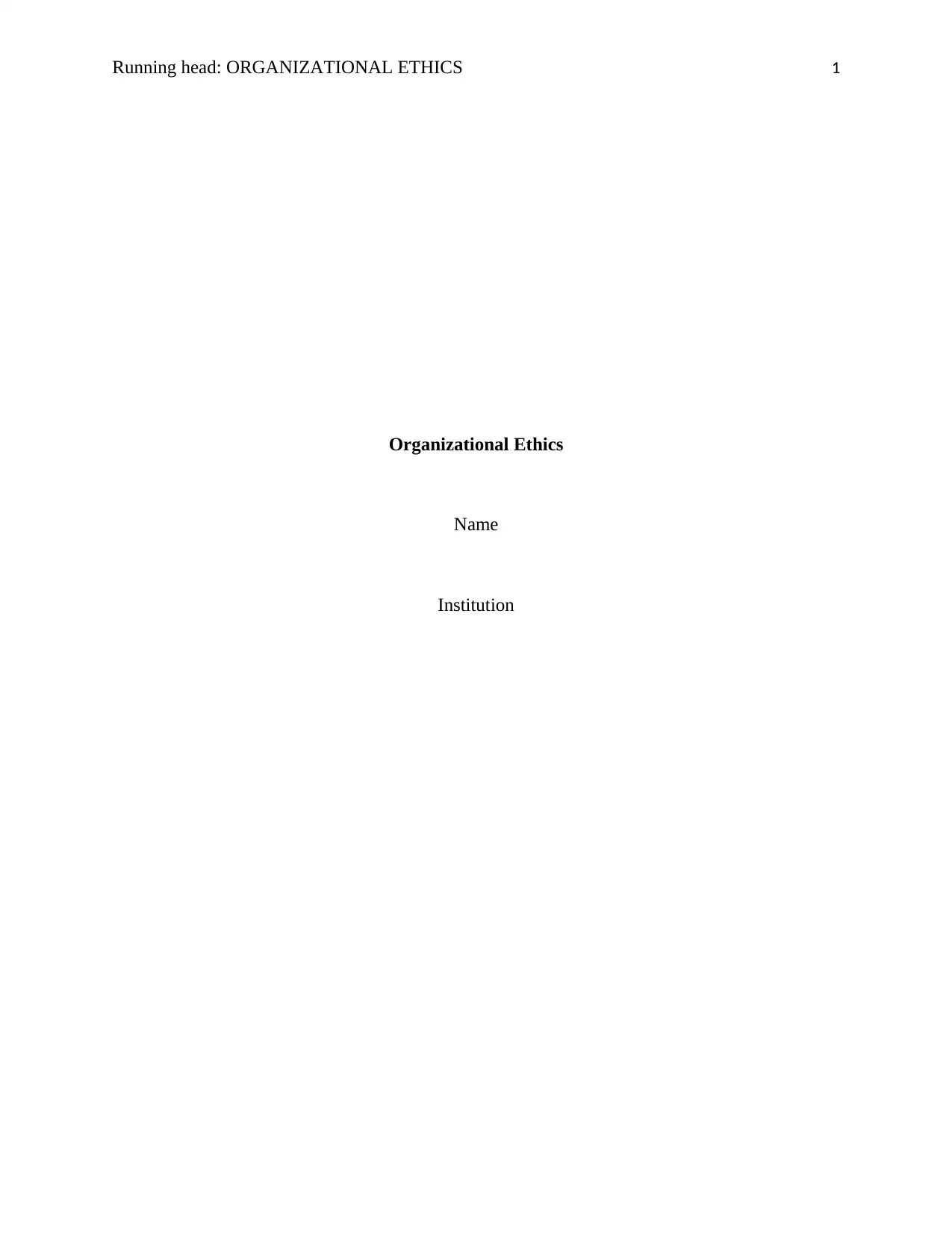
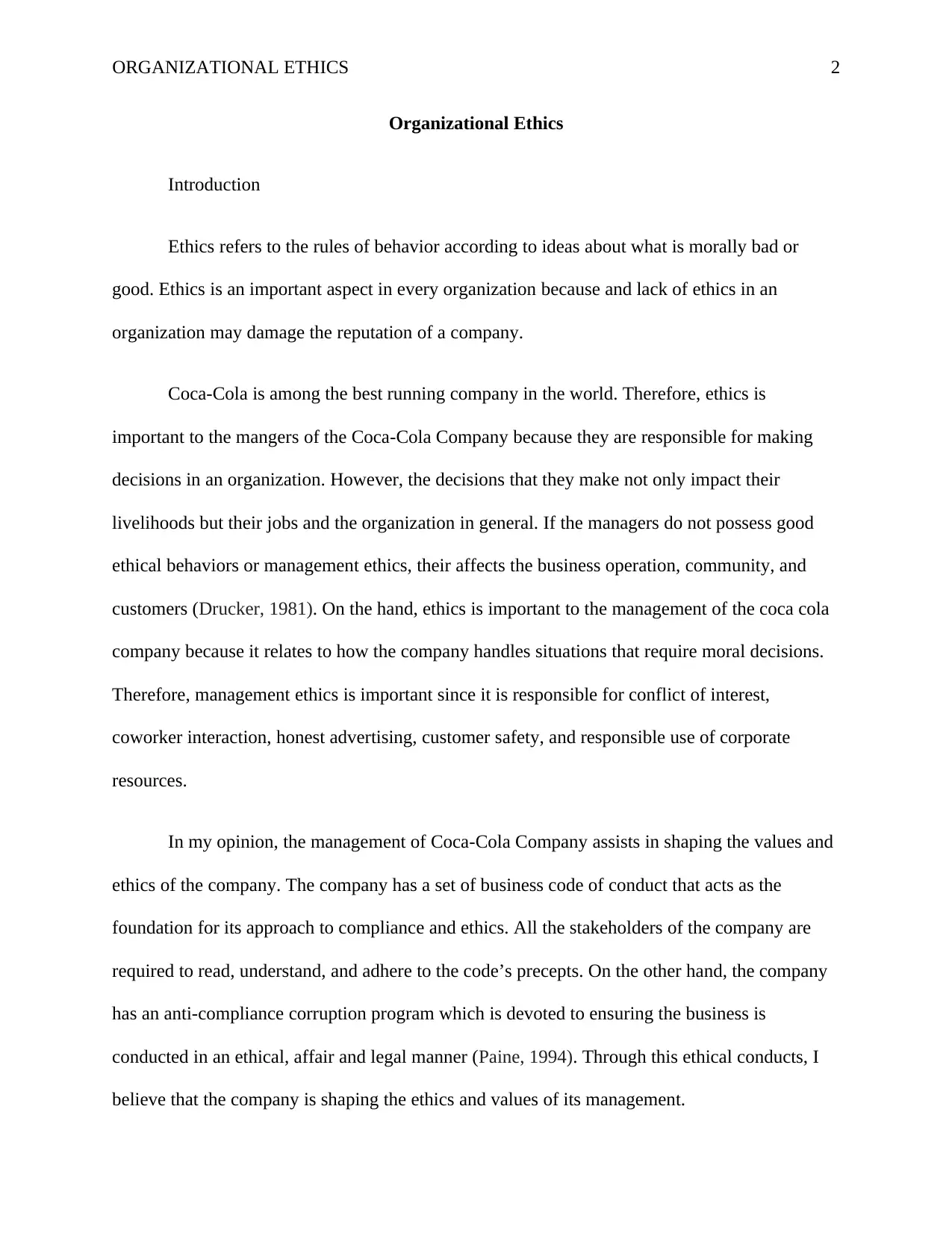
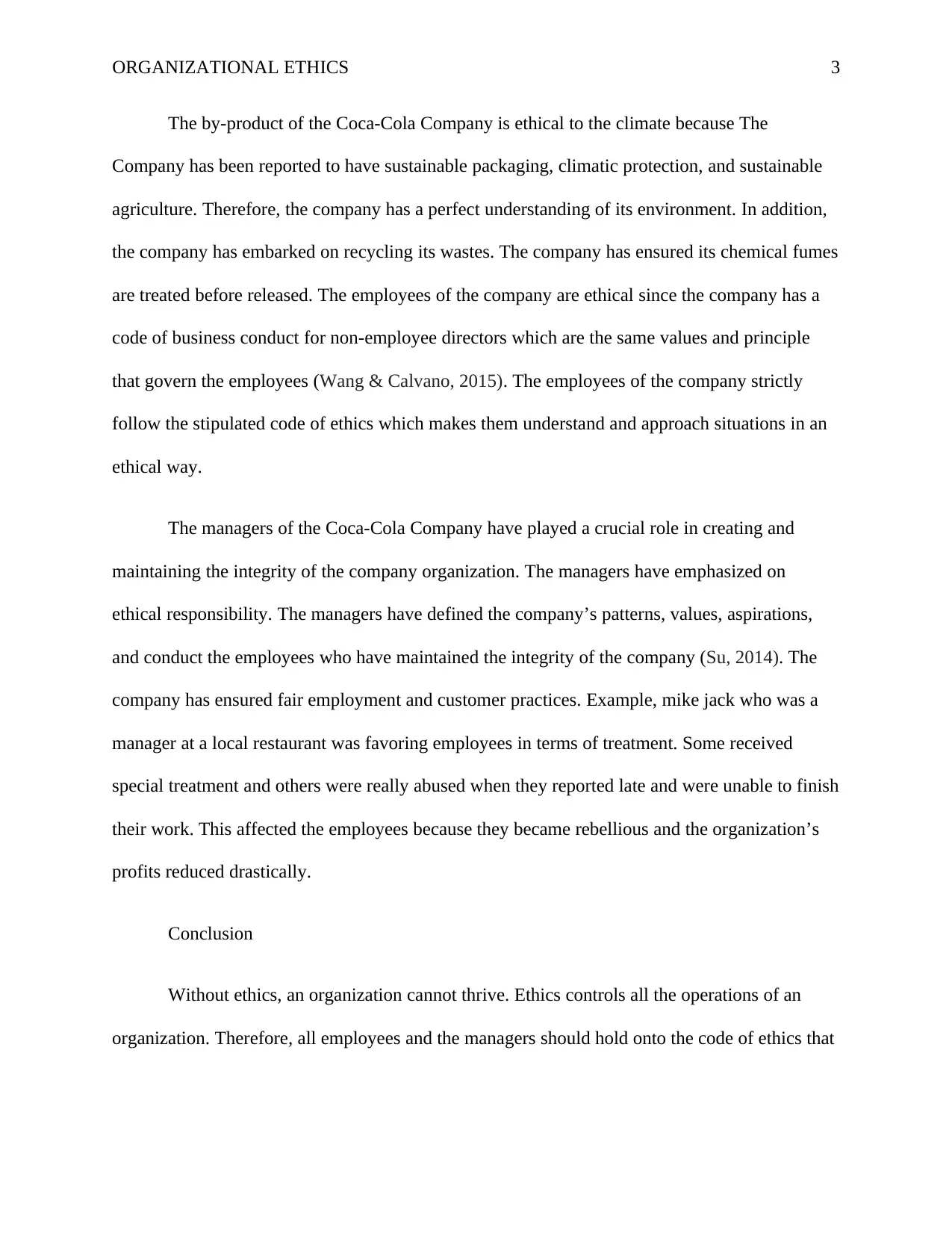

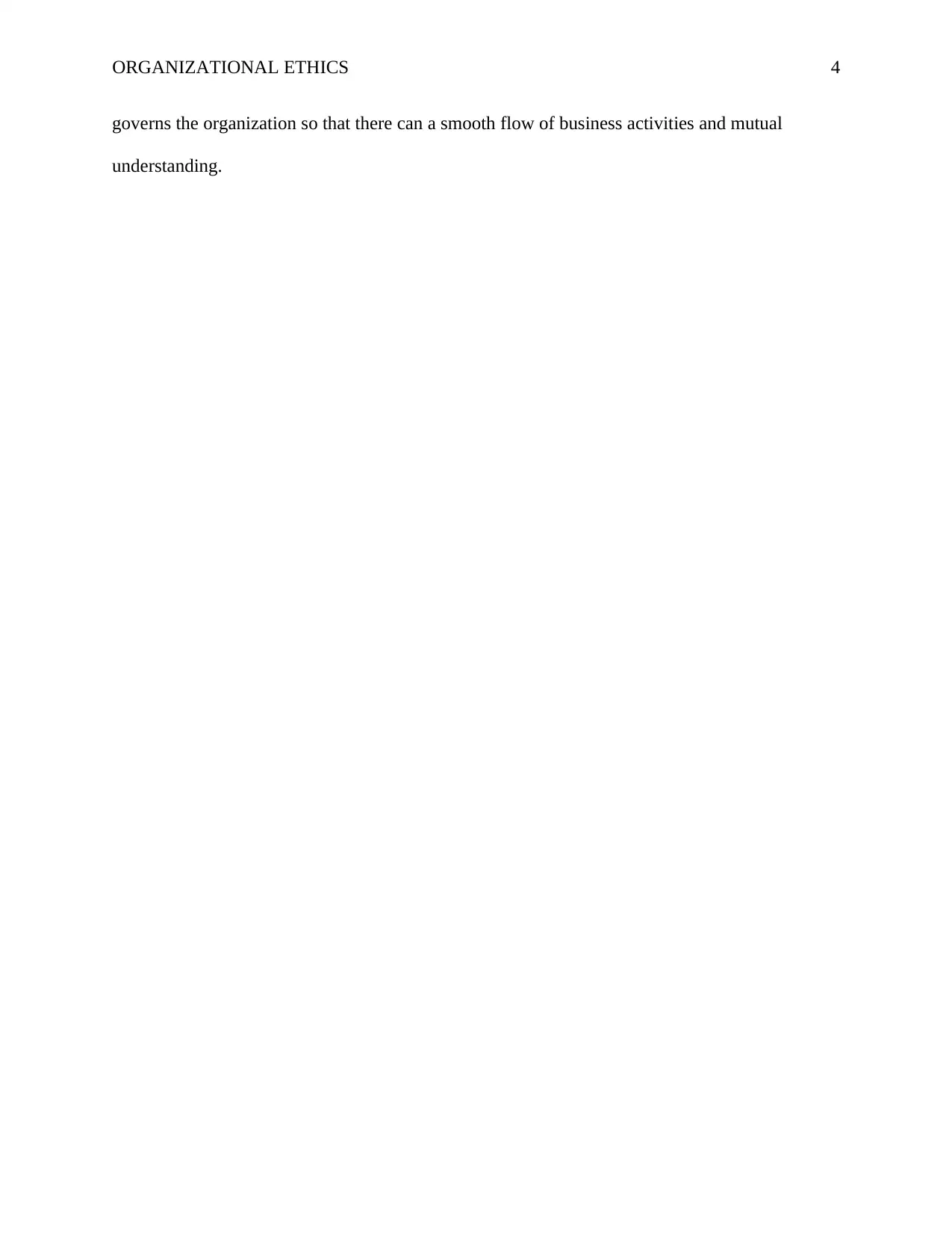
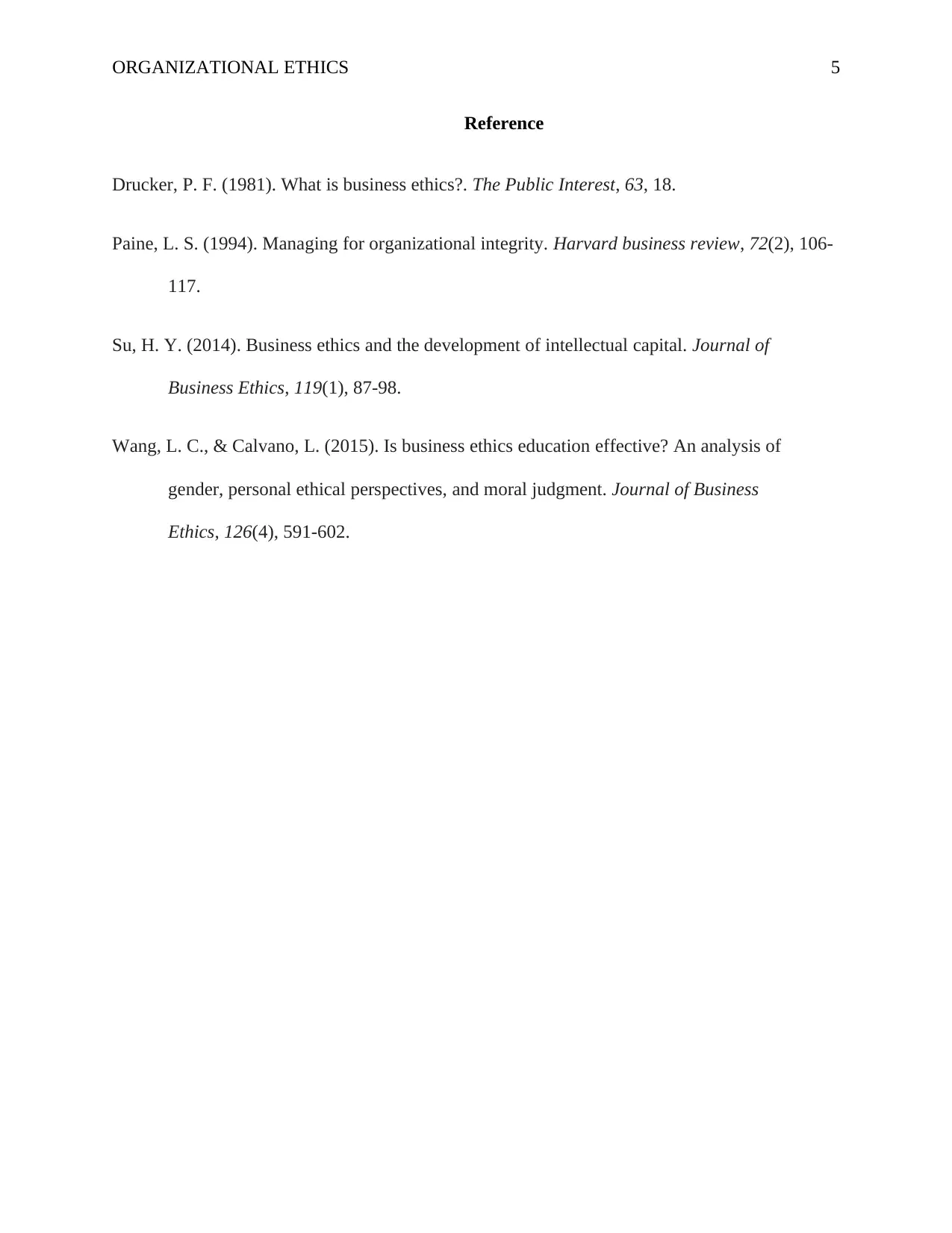






![[object Object]](/_next/static/media/star-bottom.7253800d.svg)